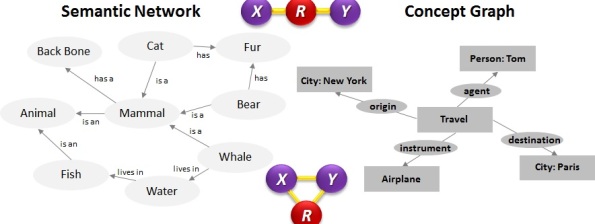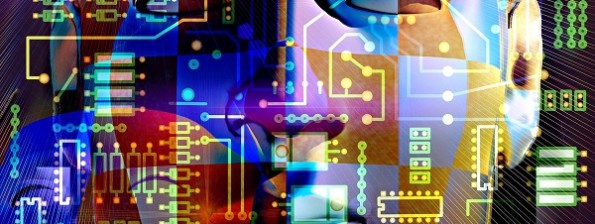Tag Archives: neural network
25 Jan Pure Democracy: a New World Disorder

Joe Roushar – January 2023 What are You Talking About? Is pure democracy possible in human society? Introducing everyone to a truly democratic society would put them on the same footing – provide a kind of equality and shared opportunity that philosophers have envisioned for millennia. Yet experience has shown us that some delegated decision […]
04 Jul Cognitive Multi-Processing

Joe Roushar – July 2017 Divide and Conquer Swarm computing applications, with large numbers of autonomous agents are beginning to appear and deliver stunning results. The combination of autonomy, simple tasks and parallelism has great power. Today I’ll address parallel computing and models for breaking down computational problems. I will not address the question of autonomy today, […]
26 Nov Planning and Scheming

Select a Knowledge Representation (KR) Scheme In prior posts I have been describing the steps of building knowledge systems. A major part of Step 3: Task 1 is defining how to store knowledge – selecting a scheme. Giarratano and Riley (1989) suggest making the selection of a scheme, such as rules, frames or logic, dependent upon […]
20 Nov Identifying and Acquiring Knowledge

One of the simplest knowledge systems is a photograph. It consists of a systematically arranged collection of pixels and its design is based almost completely on framing and focusing. Specifying knowledge software involves framing the knowledge domain and focusing on the aspects that are meaningful to users, and the constraints that affect meaning. By so saying, […]
17 Oct Neural Conceptual Dependency

Conceptual Dependency Much of this blog has been about knowledge representation: how the brain might learn and process it, how cognitive functions treat knowledge, and now, how computers may store and process it. Conceptual structures and conceptual dependency theories for computation have been useful for categorizing and representing knowledge in intuitively simple and cognitively consistent […]
08 Sep Gnostic Learning Model

In prior posts in this section, and periodically in other sections of my blog, I have been exploring how humans learn, and how we might replicate those processes in computer software or (less likely) hardware. The context of the learning, or knowledge acquisition, upon which I choose to focus is language learning. While knowledge acquisition is much broader, this is an […]
31 Jul Modeling Non-Random Synaptic Links

I have discussed the different meanings of “random” in “The Random Hamlet” and “That’s so Random!” in which the mathematical definition presumes there is some not yet known law that governs the phenomenon, where other definitions suggest that randomness means that the phenomenon is not governed by any law. Remember our reference to Rosenblatt’s early contributions in […]
26 Jul Parallel Distributed Pattern Processing

PDP Networks We have discussed recognition processes in the brain. Connectionism, a fundamentally implicit approach to neural modeling, was championed by the parallel distributed processing (PDP) group. PDP networks use many interconnected processing elements (PEs) that, according to the PDP Group, configure themselves to match input data with “minimum conflict or discrepancy” (Rumelhart & McClelland, 1986, Vol. 2, […]






